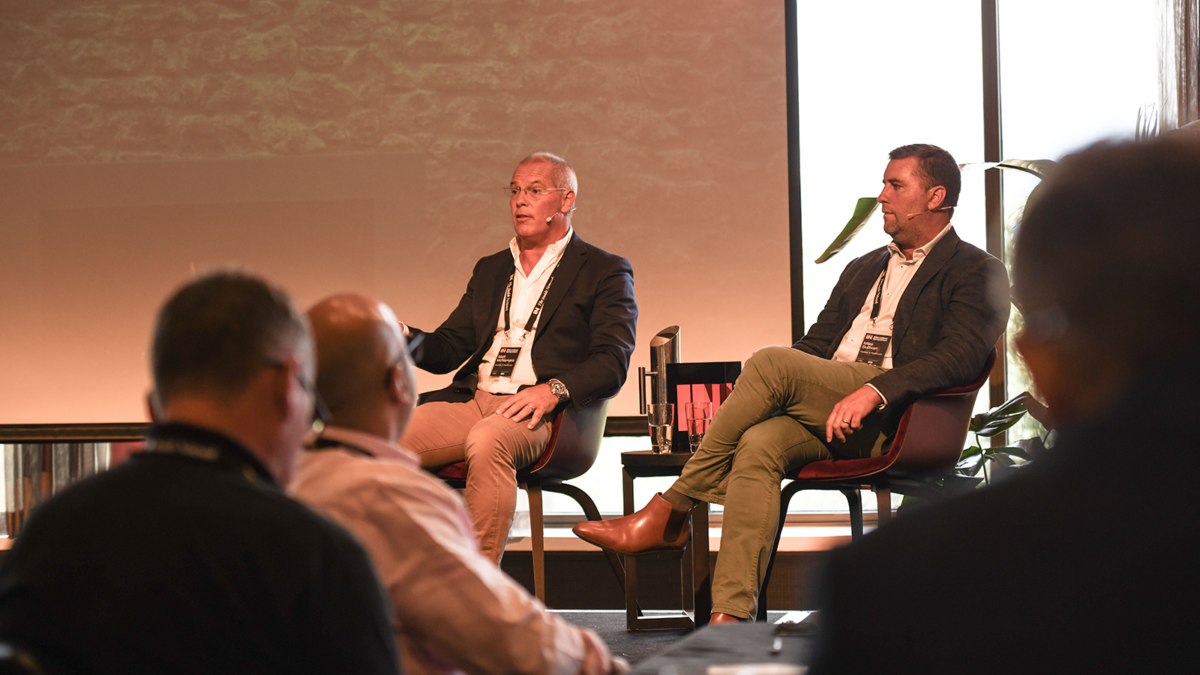‘Diversity of thought’ key to better decision-making: Neuberger
If managing a bond portfolio is a daily tug-of-war between art and science, Adam Grotzinger, senior fixed income portfolio manager at Neuberger Berman in Chicago, is on the side of the former.
Grotzinger was not a “finance nerd” in college – raised in Pittsburgh as the child of academics, he went to the University of Vermont, where he studied political science and business administration. “I enjoyed the finance classes in business administration, but I was much more interested in studying political society, and the historical background to that,” he says.
Clearly, a person needs a numerical frame of mind to work as a bond fund manager, but – and this is where the “art” comes in – Grotzinger is a big advocate for the “liberal arts,” or in the Australian context, the humanities.
“My intellectual background is not markets, but drawing on historical context, and political society, and from that I’m really drawn to making these linkages and trying to understand them and have ideas off the back of that. That’s really the stimulation to my job, piecing together what is a very complicated world and trying to understand where there’s pockets of opportunity that can occur from that,” Grotzinger says.
“We run an unconstrained fixed-income portfolio; anything that is a bond, anywhere in the world, we can look at. In that world, there are so many drivers – things that affect sovereign issuers, things that affect corporate issuers. I like to understand the historical context around markets, trying to understand where there is a bit of repetitiveness around history and common drivers and different aspects, different recessionary environments, different policy environments. There are infinite things to learn there,” he says.
Grotzinger’s path to fixed-income funds started in California, where he had moved following graduation in 2002. “I had done some summer internships in Pittsburgh, in biotech, but it was a really weak job market, and I took a year off, moving to California with my girlfriend at the time.
“I did some odd jobs, invested a bit, and thought about where I wanted to go, and focus. It was the west-coast recruiting season that Spring, and I applied to an asset management firm, Franklin Templeton, for its training program. I joined that in 2003.”
Grotzinger found the training program very different to what he envisaged. “It wasn’t ‘Oh, come in and be an analyst,’ or ‘Come and learn how to be a trader,’ it was, ‘come into the asset management business, and for two years, work a series of rotations in different disciplines of the business, from sales and marketing, into the corporate side – how the company manages itself, and issues its own debt and equity, and then into the investment side.’
“From that experience, I knew that I preferred the investment side; but I also enjoyed speaking to clients. I did enjoy my time on the sales side, and how those two connect, on not only building a solution that is relevant for a client – all of the intricacies and the plumbing of that – but also, communicating that with clients, listening to them, and how those two intersect,” he says.
Coming out of that training program, Grotzinger started on the equities side of Franklin Templeton. “Shortly after that, there was a shortage of fixed-income coverage, and I was asked to join the fixed-income side. I did that for two years, and then in 2005 I was asked would I go to London.”
After four “fantastic” years in London, Grotzinger moved to Singapore with Franklin Templeton. There, he found a completely different bond-market environment: “It was a very exciting time in Asia, the region as a whole was opening up, and there was a lot of investment management focus there,” he says. And in his nine-and-a-half years in Singapore, he also gained a family, marrying his wife, a Singaporean educational psychologist, and having a son and a daughter.
Then came an offer to join Neuberger Berman, in Chicago, so the family moved. “We’d always talked about giving our kids the opportunity at some point in their lives to live elsewhere – for us, the US was the natural place, given that I’m American – but Chicago came with a lot of scope for getting out into nature, to the north, along Lake Michigan, up near Lake Superior, we’ve done a lot of walks around here, and my kids are really engaged in nature. They’re city kids during the week, but we get out into nature as much as we can.”
And the job, in an unconstrained strategy that Neuberger Berman employs, is a great fit, too. “It’s an intellectually stimulating world to work in, and the conversations we have are philosophically interesting,” Grotzinger says.
“Most managers these days would say that they have a culture of diversity of thought, and we certainly do. We have a process of debate and discussion for getting to an outcome where consensus leads us and having the right forums to debate that. I think that having lived around different parts of the world has been really important for me, rather than just having a bunch of us who all went to the same university and did the same courses debating macro-dynamics. We believe that diversity of thought is really important in getting better decision-making, and challenging your own decisions is a big part of that.”











